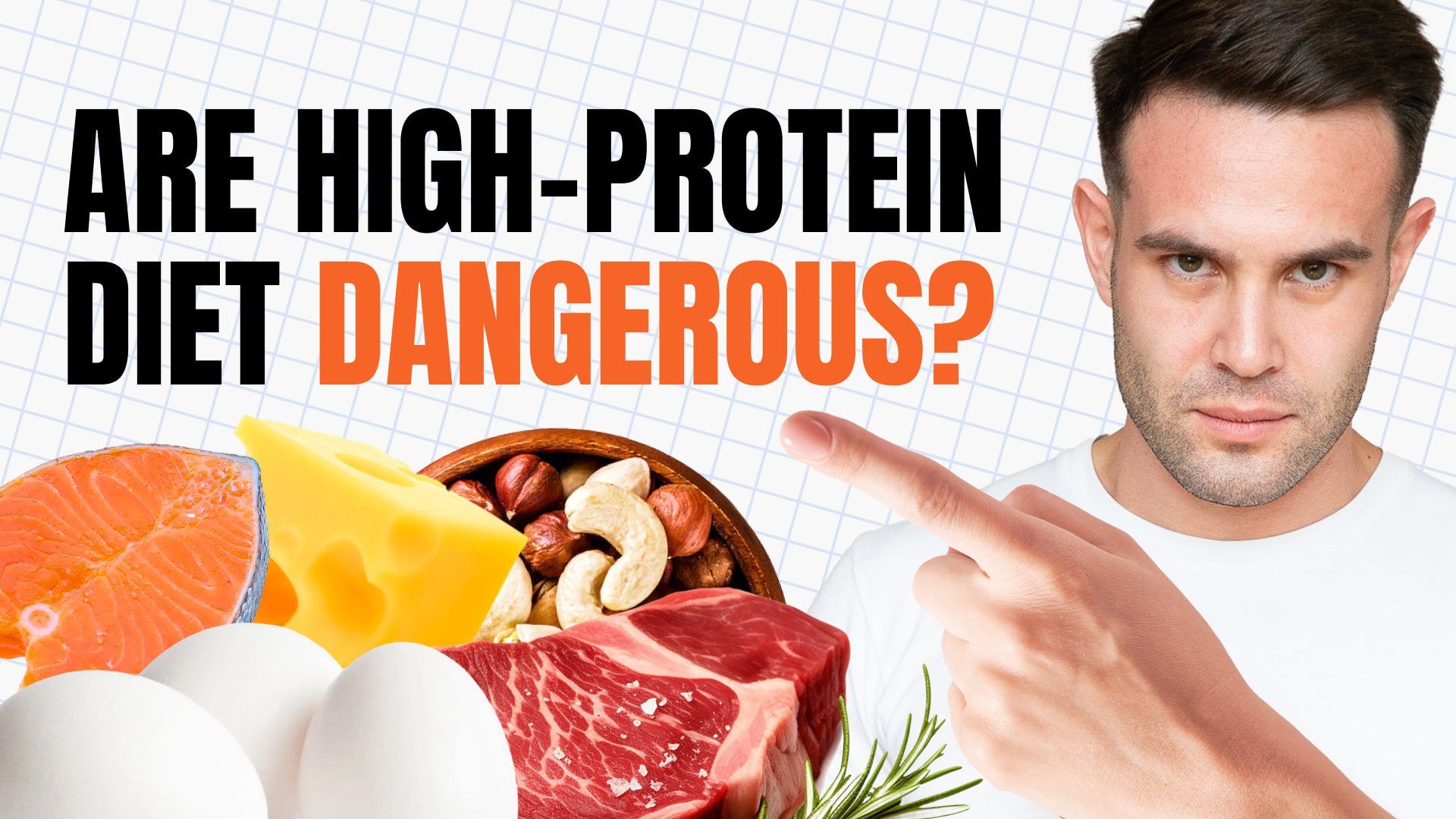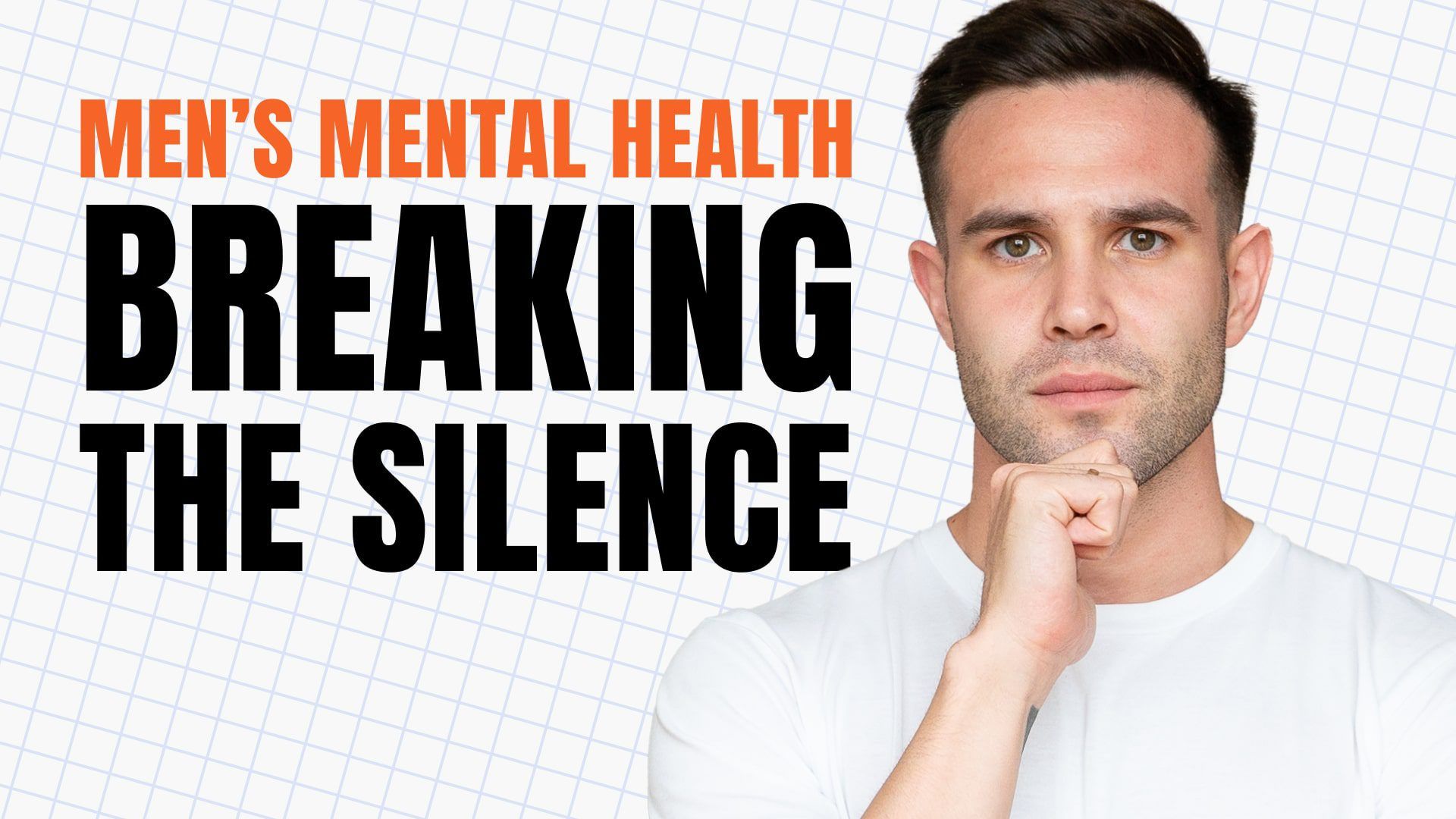Table of contents
In this article, you will learn
High-protein diets have gained popularity for their potential health benefits, particularly weight loss and muscle maintenance.
However, it’s essential to understand both the benefits and risks associated with such diets.
In this article, you’ll learn how high-protein diets can aid in weight loss, support muscle growth, and impact your overall health, as well as the potential risks and how to balance your diet effectively.
Don’t like to read? Watch the video
Benefits of High-Protein Diets
High-protein diets offer several benefits that can support your health and fitness goals.
Weight Loss and Management
One of the primary reasons people adopt high-protein diets is for weight loss and management.
Reduced Appetite and Increased Satiety: Protein is known to help you feel fuller for longer. It reduces levels of the hunger hormone ghrelin while increasing levels of peptide YY. This hormone makes you feel full.
Calorie Burning: The thermic effect of food (TEF) is the energy required to digest, absorb, and process nutrients. Protein has a higher TEF than fats and carbohydrates, which means your body burns more calories processing protein.
Muscle Gain and Maintenance
Protein is crucial for muscle growth and repair, and it is particularly beneficial for athletes and those looking to build or maintain muscle mass.
Muscle Repair and Growth: Protein provides the building blocks (amino acids) necessary for repairing and building muscle tissue. This is especially important after workouts when muscles need to recover.
Prevention of Muscle Loss: High-protein diets can help prevent muscle loss during weight loss, ensuring that the weight you lose is mostly fat rather than muscle.
Metabolic Health
High-protein diets can positively affect your metabolism and help with blood sugar control.
Increased Metabolism: Protein boosts your metabolic rate more than fats or carbohydrates. This increase in metabolism can help you burn more calories throughout the day.
Blood Sugar Control: Protein can help stabilize blood sugar levels, which is beneficial for managing and preventing type 2 diabetes.
Cardiovascular Health
While traditionally, high-protein diets have been linked to concerns about heart health, recent research shows potential benefits.
Heart Health: Some studies suggest that high-protein diets, mainly plant-based proteins, can improve heart health by reducing risk factors such as high blood pressure and cholesterol levels.
Risks of High-Protein Diets
While high-protein diets offer several benefits, there are potential risks to be aware of.
Kidney Health
High protein intake can put extra strain on your kidneys, particularly for those with pre-existing kidney conditions.
Kidney Function: Excessive protein intake may increase kidney workload, potentially exacerbating existing kidney issues. So, monitoring kidney health is essential if you’re on a high-protein diet.
Bone Health
There are concerns that high-protein diets may affect bone health by increasing calcium excretion.
Calcium Loss: Some studies have suggested that high protein intake, particularly from animal sources, may lead to calcium loss through urine. However, other research indicates that adequate protein intake and sufficient calcium can support bone health.
Nutrient Imbalance
Focusing too heavily on protein can lead to a lack of other essential nutrients in your diet.
Balanced Diet: It’s important to balance your protein intake with other nutrients, including fiber, vitamins, and minerals from fruits, vegetables, and whole grains. A restrictive high-protein diet may lead to deficiencies in these areas.
Long-Term Health Risks
Long-term adherence to high-protein diets may pose certain health risks.
Chronic Diseases: Some research indicates that long-term high-protein diets, particularly those high in red and processed meats, may increase the risk of chronic diseases such as heart disease and cancer. Moderation and variety are key to minimizing these risks.
Balancing High-Protein Diets
To enjoy the benefits of high-protein diets while minimizing risks, it’s important to maintain a balanced and varied diet.
Combining Protein with Other Nutrients
Include Fruits and Vegetables: Ensure your diet includes plenty of fruits and vegetables to provide essential vitamins, minerals, and fiber.
Whole Grains and Healthy Fats: Incorporate whole grains and healthy fats into your meals to maintain a well-rounded diet.
Personalized Nutrition
Your individual needs can vary, so seeking personalized dietary advice is essential.
Consult Healthcare Providers: Speak with a healthcare provider or a registered dietitian to tailor your diet to your specific needs and health conditions.
Practical Tips for Following a High-Protein Diet
Here are some practical tips to help you follow a high-protein diet effectively.
Choosing High-Quality Protein Sources
Animal-Based Proteins: Opt for lean meats, poultry, fish, eggs, and low-fat dairy products.
Plant-Based Proteins: Include beans, lentils, tofu, tempeh, nuts, seeds, and whole grains.
Meal Planning and Preparation
Incorporate protein into every meal and snack to meet your daily protein needs.
- Breakfast: Start your day with a protein-rich breakfast, such as eggs, Greek yogurt, or a protein smoothie.
- Lunch and Dinner: Include a source of protein in your main meals, such as grilled chicken, fish, or a plant-based protein bowl.
- Snacks: Opt for high-protein snacks like nuts, seeds, or cottage cheese.
Monitoring Health and Adjusting Diet
Regularly monitor your health and adjust your diet as needed.
Health Check-Ups: Schedule regular check-ups with your healthcare provider to monitor your kidney function, bone health, and overall well-being.
Adjust Protein Intake: Adjust your protein intake to maintain a balanced diet based on your health status and goals.
Key Takeaways
- High-protein diets offer several benefits, including weight loss, muscle gain, and improved metabolic health.
- Potential risks include kidney strain, calcium loss, nutrient imbalances, and long-term health risks.
- To balance a high-protein diet, include a variety of nutrient-rich foods and seek personalized advice from healthcare professionals.
If you have any questions or want to learn more, visit my blog and follow me on social media for helpful guides and health and wellness tools.
Works Cited and Relevant Links
- Harvard T.H. Chan School of Public Health. The Nutrition Source: Protein. Retrieved from https://www.hsph.harvard.edu/nutritionsource/what-should-you-eat/protein/
- National Institutes of Health (NIH). Effects of High-Protein Diets on Health. Retrieved from https://www.ncbi.nlm.nih.gov/pmc/articles/PMC3373807/
- Mayo Clinic. High-Protein Diets: Are They Safe? Retrieved from https://www.mayoclinic.org/healthy-lifestyle/nutrition-and-healthy-eating/expert-answers/high-protein-diets/faq-20058345
- American Journal of Clinical Nutrition. High-Protein Diets and Health. Retrieved from https://academic.oup.com/ajcn/article/100/1/237/4576413
- PubMed. Benefits and Risks of High-Protein Diets: A Review. Retrieved from https://pubmed.ncbi.nlm.nih.gov/32767838/
- Journal of the American Dietetic Association. High-Protein Diets: An Overview of Current Research. Retrieved from https://jandonline.org/article/S0002-8223(07)01416-2/fulltext
- World Health Organization (WHO). Dietary Protein and Health. Retrieved from https://www.who.int/nutrition/publications/nutrientrequirements/WHO_TRS_935/en/
This is a personal blog. I am not a doctor, fitness coach, nutritionist, or trained health professional. The information I share is based on my personal experience, self-research, and insights from working with health and wellness professionals. My content is for informational and entertainment purposes only and is not intended as health advice.
Always consult with your healthcare provider before making any significant changes to your health routines or treatments. I am not liable for any actions taken based on this information.
With that said, your well-being is my top priority. Stay healthy and take care!
Credits and Team

















Leave a Reply